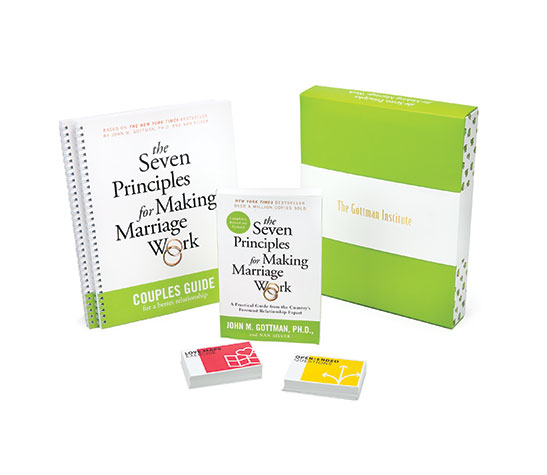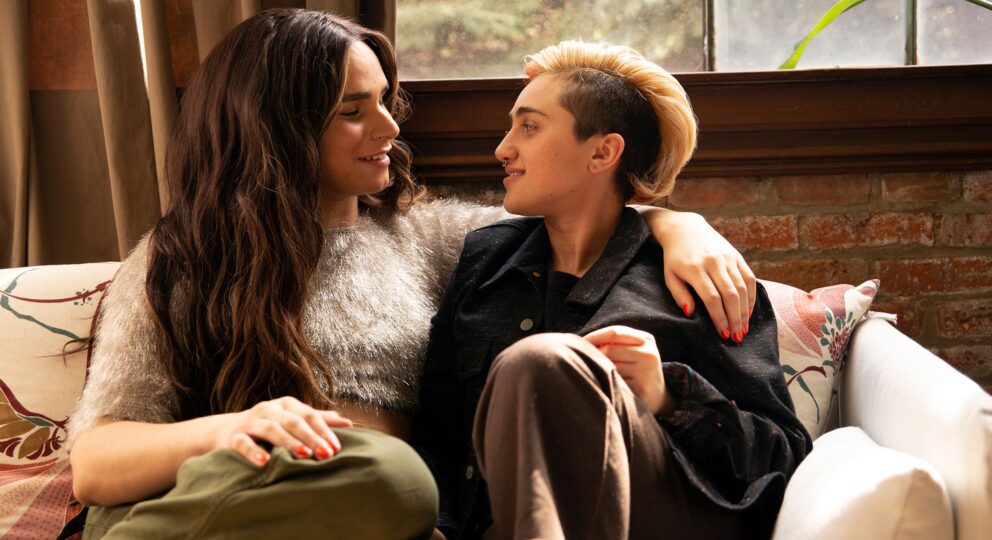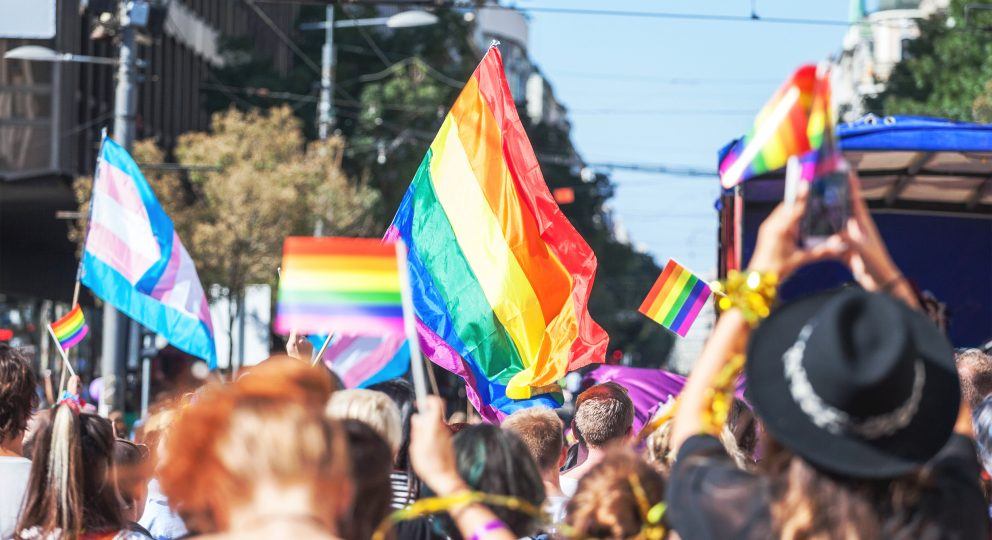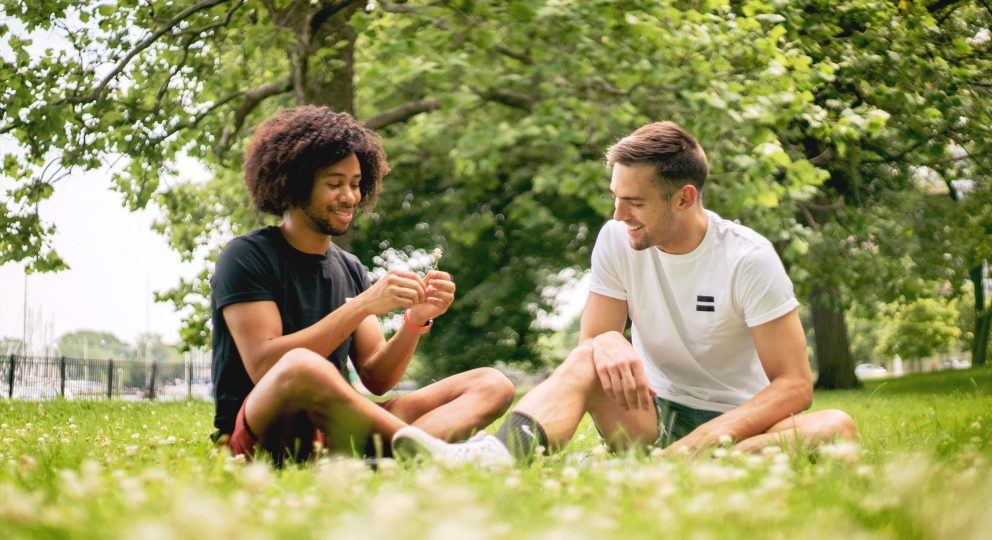By McKenna Rankin
Editor’s Note: We’ve been studying relationships for the last four decades, but we still have so much to learn. Through the individual stories and experiences shared in Real Relationships, we aim to paint a more realistic picture of love in the world today. The views, thoughts, and opinions expressed in this article belong solely to the author, and are not necessarily based on research conducted by The Gottman Institute.
I didn’t think much about gender until sometime around 2nd grade. By that time, I was no longer allowed to run around without a shirt on, and started to notice the appearance and behavior differences between girls and boys. And I started to feel the restrictions that gender placed upon me, and I didn’t like them at all. But for the most part, I felt the freedom and had the confidence to cross gender lines. As I got older, it became more difficult to be my full self. I became more aware of the norms I did not fit into, and people’s reactions when I crossed those lines, and I didn’t know why I didn’t fit.
In college, I experimented with my appearance. I shifted away from wearing both men’s and women’s clothes and tried the hyper-feminine thing. I dated a series of guys, who I’m pretty sure were mainly interested in me for my body, and I felt like I couldn’t be myself. Sometime in the middle of all this, I met my husband Greg online. He was working full-time at Taco Bell, paying his way through college, and I was in graduate school.
Our first date was in September, in Texas, and it was hot. I wore a blazer to cover the tattoos on my arms because I feared a “normal” guy would see them and run. But, I learned pretty quickly that Greg was fully himself. He’d start singing or dancing just about anywhere, would strike up a conversation with anyone, and was not concerned with fitting the stereotypical image of a cisgender male. In many ways, he’s very feminine, and masculine, and he shows his entire self all the time. He encouraged me to be myself, too. It wasn’t so much that he encouraged me—it was expected, and it was our norm.
A year and a half after we met, we got married. Two years later, our twins were born. Shortly after their birth, I discovered that there was a term for how I experience gender: non-binary. My coming-out didn’t come as a surprise to anyone who really knew me, but it did bring clarity to a part of myself I had been struggling to understand since I could remember.
Greg and I have an ongoing conversation about gender. Before our kids were even conceived, we planned on raising them in as gender-neutral of an environment as we could. We kept their assigned gender a secret from everyone until they were born. Some family members thought this was because we wanted it to be a big surprise, but our goal was the opposite. We wanted to prevent them from being thrown into a box, based on their gender, for as long as we could. We certainly didn’t want it to happen before they were even born.
Our twins have gender-neutral first names. One has my surname and the other has Greg’s. They wear gender-neutral clothes. We’ve noticed that because of how we dress them, people, including ourselves, often relate to them more like children rather than boys or girls. People relate to them the way I wish people would relate to me. Some in our family were angry about our choice for their names, specifically their surnames. And they got offended when they never saw the twins wearing the gendered clothes they had purchased for them. At first, I feared that the way we did things was too radical or too difficult. But now it’s really just our norm.
I now use the pronouns they/them/theirs. This change in pronouns has taken Greg some time to get down. At first, he wasn’t sure how to incorporate them correctly. Because of this, when he’d refer to me my pronouns awkwardly stuck out, which made me feel even more different. Or he’d use the incorrect pronoun and then correct himself and it stood out then, too. He might say, “They is non-binary” or, “I went to the movies with they.” Or, he’d say, “She is, they is, I mean they are…having coffee with a friend right now.”
He’s gotten a lot better, but he still sometimes messes up. I try to kindly correct him when he slips up, and he tries to understand when I get frustrated with him. I sometimes get discouraged and feel overwhelmed. But he reassures me that he’ll get this down, and all of this will become our norm soon.
Reactions from other family members about my pronouns have varied. Some of them choose to sidestep my pronoun use and just use “McKenna.” Others try to be supportive, but have this mentality of “don’t ask, don’t tell.” Some questioned my need to come out in the first place, believing that non-binary gender should be the norm anyway. Others dare not say anything negative but are visibly embarrassed when I correct them, specifically when they refer to me around people outside of the family.
By the time I came out, our twins were already a year old, and they were calling me “mama.” I not only felt uncomfortable with being called “mama,” but also felt distressed by the roles that often came along with being a mother, like being the primary caregiver, doing the majority of the housework, and being the go-to person to make decisions pertaining to our children. After some thought, I decided that I want to be called “momo.” At first, I felt guilty about changing what my babies called me. Maybe even a little ashamed. I couldn’t and didn’t want to be a woman or a mother. I also experienced backlash from some women in my life who felt like by identifying as non-binary, I was judging or renouncing femaleness in general, and their own roles within their families.
Greg asks questions and doesn’t make assumptions. He’s sensitive, respectful, and open. For a long time, our conversations about gender revolved around me getting dressed in the morning, which was often difficult for me. It wasn’t unusual for me to try on my entire closet, and all of my clothes often ended up in a pile on the floor. I’d cycle between saying through tears, “this is too feminine,” and, “this is too masculine.” These “clothing crises” as we called them have pretty much stopped since coming out. But I still have days where I’m bothered by certain aspects of my physical body, like my breasts, or my hips. Greg thinks I look good no matter how I present—man, woman, or a little of both. Although I know this, sometimes I struggle with believing it. I rarely see people who present like I do. And I even more rarely come across other non-cisgender couples. I’m sure they are out there, because we are. Because of this, my mind sometimes starts going down the “there must be something wrong with us” road. Greg doesn’t make space for this way of thinking.
I’m aware that our relationship presents differently than society’s standards. But I also know that love shouldn’t, and doesn’t, have a defined look. I notice the looks we sometimes get when we are out together. I’m terrible at mind-reading, although I’ll often say otherwise, but I’m guessing people are trying to figure out what we are. More specifically, what I am—male or female. And what that means for our respective sexualities and our relationship. My guess is that trying to figure us out can make people’s heads spin. If I were asked to describe our relationship in terms of gender and sexuality, I don’t think I’d be able to. But, here it goes…I’m sometimes male, sometimes female, often both, and sometimes neither. And Greg is male. Sometimes, we are a hetero- couple, sometimes a gay couple, but most of the time we live outside of the established labels altogether.
I know people want to know “what” we are, so they know how to relate to us. It sometimes feels unsettling to me to not know “what” we are either. But, then I remember that it doesn’t even matter in the first place. At the end of the day, we are just Greg and McKenna, just two people.
I don’t expect or want Greg to be a textbook man. He’s never expected me to be a textbook anything. We usually do a good job of challenging the roles within our relationship. Nonetheless, we know how culture and our upbringing has created certain gender roles in us. Before I came out, I did the majority of the family planning, organization, housework. And I was looked to as the leader for all things pertaining to our children and our house. Honestly, I sometimes found myself feeling that because of my gender, these things were my job. Sometimes, it felt easier and less exhausting to give in to the roles than to have a constant battle with Greg over them. But this ultimately created bitterness and resentment. It’s been difficult to acknowledge that gender biases exist within our relationship and family. We’d like to think we live completely outside of them, but we don’t. Since I came out, we’ve challenged these roles even more. Conversations about our roles have become less stressed and are approached with more curiosity and openness. Ultimately, we’re more untethered from gender roles.
Part of coming out has involved me grieving the loss of something I never had, and we never had—a heteronormative relationship. But more so, coming out has meant learning that there’s no one right way for a relationship to look. We’ve been able to connect outside of gender, outside of roles, and outside of our physical bodies. It can be difficult to strip away the ideas about how our relationship “should” look, and just be in it. When I’m able to do this, I’m flooded with how beautiful our relationship really is. I’m getting better at tossing aside the norms that we don’t fit, and when I do, we connect so much more deeply.
Sign up for the Love Notes Newsletter
Get the latest on relationships, parenting, therapy and more from the experts at The Gottman Institute, plus get a FREE download every month!
.










